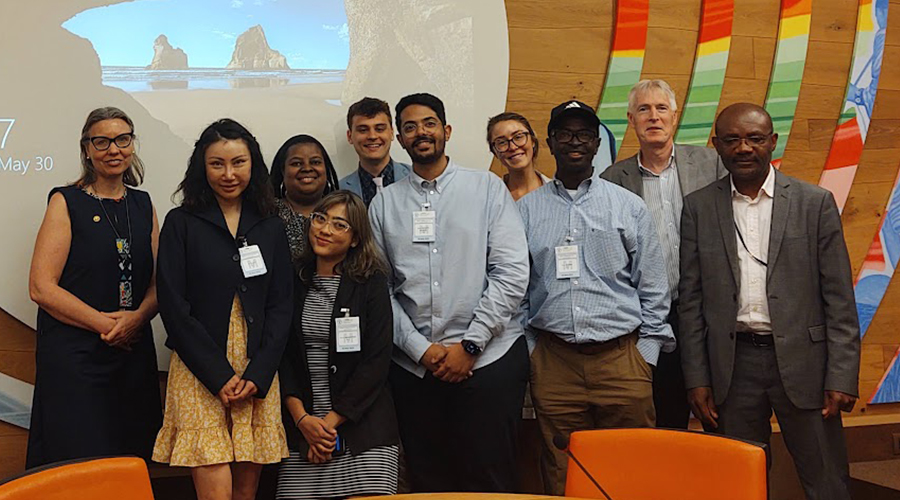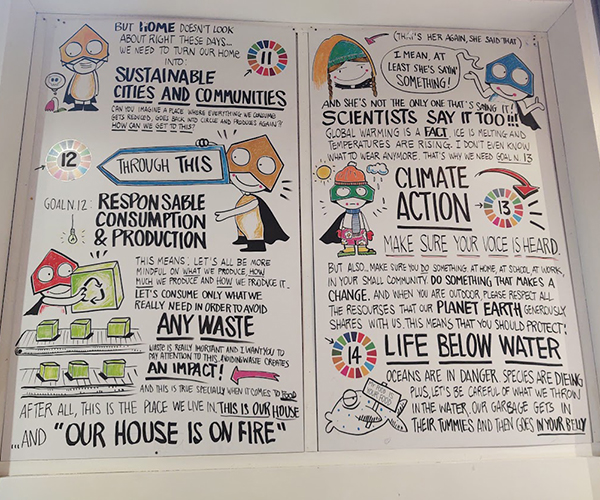
This summer, several Penn graduate students recently returned from Italy after completing international coursework with a sustainability focus in the Organizational Dynamics course DYNM 7660: Global Collaboration for Sustainability—The Food-Water-Energy Nexus in Italy.
In this class, students focused on addressing the critical challenge of providing sufficient nutritious food for 10 billion citizens by 2050 in a sustainable manner (i.e., within planetary boundaries). The linkage between food, water, and energy needs was explored in-depth, along with the connection between the food system and the United Nations’ Sustainable Development Goals.
Innovation and partnerships to advance food system transformation were explored with critical partners in Italy, including the Future Food Institute, the University of Bologna, the University of Venice, Starbucks, and the Food and Agricultural Organization in Rome.
The course was further shaped by Italy’s unique, rich, food-centered culture and included tours of Parmigiano-Reggiano cheese and balsamic vinegar producers.
Three students, Nawaf Alharbi (MS NPL), Annisa Nurantono (MES), and Elvis Gisiora (MSOD), collaborated on a project exploring food loss and waste (FLW) in the airline industry. They investigated the scale and sources of food waste in the industry, the impact and drivers of that waste, how the industry can prioritize FLW reduction without diluting its principal stakeholder interests, and recommendations for mitigating the generation of FLW.

The students also had many key takeaways from the work.
Annisa Nurantono stated that regarding food waste, the highest and most impactful opportunity from a social, environmental, and financial standpoint is to prevent the occurrence of waste in the first place (as indicated by the fact that prevention, or source reduction, is the highest level in the EPA’s food recovery hierarchy). She cited pre-flight screening of food orders and considering passengers’ dietary restrictions and food preferences as an opportunity to prevent waste, adding that advanced technology tools such as artificial intelligence and data science could be harnessed to optimize production and minimize waste.
Elvis Gisiora commented on several factors—normative, habitual, intentional, and situational—that affect customer behavior regarding food waste. He added that delivering informative and appealing messages to raise passengers’ awareness of the importance of reducing food waste is essential, similar to “no smoking” messaging and signage. He also touched on the need to update food safety regulations such that untouched, properly handled food can be donated anywhere.
Nawaf Alharbi noted that airline industry incentives such as loyalty and frequent-flyer programs that drive consumer behavior change can be leveraged to combat food waste. This could be a win-win solution for both sides, passengers and airlines. For instance, passengers who don’t want a meal and inform the airline before the flight will receive flyer points as the airline will not pack a meal for the passenger, saving the cost of the meal and the associated waste disposal costs.
All in all, the students agreed that combating FLW needs collective actions from all stakeholders in the aviation industry, including the airlines, food suppliers, waste contractors, and passengers, and that reducing wastage in the industry will be a significant step in the global movement to cut food waste in half by 2030 as covered in Sustainable Development Goal 12.3.
Read more about Penn’s Organizational Dynamics Programs >



